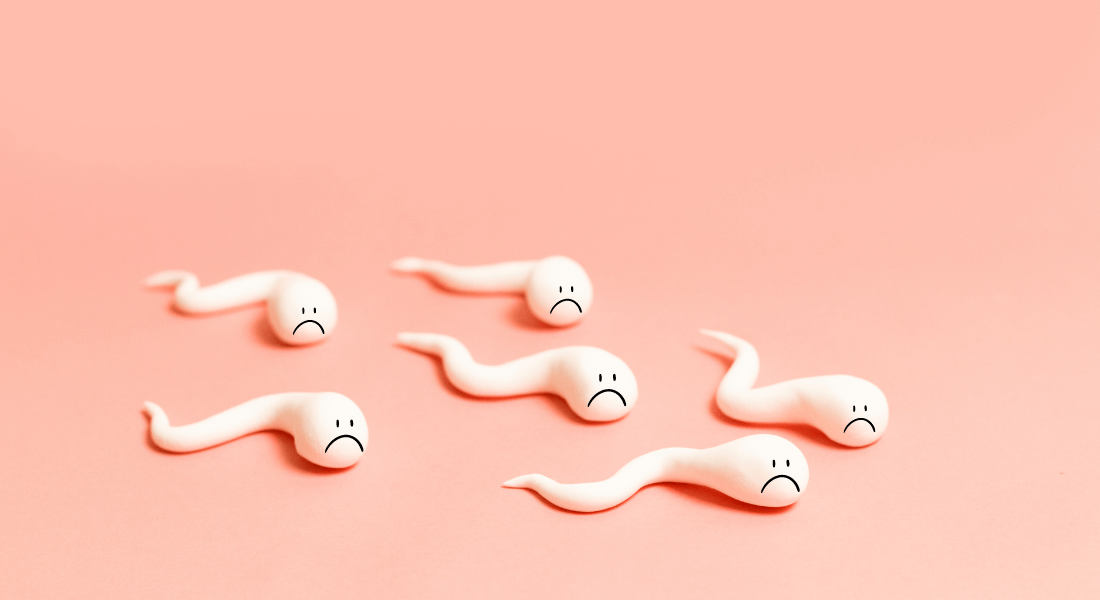Why has sperm counts decreased to an all-time low? New leading study seeks to find the answer
Sperm counts have halved in the last 50 years – one possible explanation could be because the sex chromosomes are fighting each other, new Danish research suggests.

By 2044, the average sperm count of men may be 0 – at least if sperm counts continue to decrease.
Already today, most of us are likely to know someone who has undergone fertility treatment. The number of sperm cells a man produces has halved in the last 50 years, and around one in ten children today is a result of assisted reproduction.
Now researchers from the University of Copenhagen have compared human sperm cells with sperm cells from our closest relatives - the great apes. And it actually makes good sense to compare the two. Because in many ways, we resemble great apes – only they produce around three times as many sperm cells as humans.
“Our closest relatives, the great apes, including for example chimpanzees, produce more sperm cells than we do. This is because meiosis, the process through which sperm cells divide, is less effective in humans than in apes, which means that more sperm cells are lost,” explains Associate Professor Kristian Almstrup from the Department of Cellular and Molecular Medicine.
By studying the genes expressed in each cell in the testes of apes and humans, the researchers have been able to identify genes that are expressed in the same way or differently between the two. This will help to better understand why human sperm counts are decreasing while the sperm production of apes remains efficient.
Battle of the chromosomes
In both humans and apes, meiotic divisions determines the gender of the baby. And this process – the battle of the sex chromosomes – may hold the answer to why humans and apes differ in terms of sperm counts. Because the conflict of the sex chromosomes is likely to mess up the sperm production, this likely also affect the body’s ability to produce sperm cells, Kristian Almstrup explains.
“The sex chromosomes, X and Y, are fighting a selfish battle referred to as the meiotic drive. Apes are better than humans at producing sperm cells, and this may be because the meiotic drive in humans has gone too far, inhibiting the production of sperm cells,” he says.
The researchers now seek to learn more about the meiotic drive in order to understand how we can help couples who have difficulties conceiving.
Apes are better than humans at producing sperm cells, and this may be because the meiotic drive in humans has gone too far, inhibiting the production of sperm cells
“We hope the study will increase our knowledge of the meiotic drive and whether it really is more pronounced in humans than in apes. If that is the case, we have come a step closer to understanding why humans produce fewer sperm cells,” says Kristian Almstrup and adds that the new study also provides insight that can be put to immediate use.
“We have mapped the genes that we know are evolutionary conserved in the production of sperm cells. This insight will prove useful to clinicians seeing men with a mutation in one of these genes as it is a likely explanation of why they have difficulties conceiving.”
“Facing a huge fertility crisis”
Research into sperm quality is important. Because right now, the only reason why the world population is increasing is that we live longer; it is not because we produce more children.
“The last meta-analyses show that human sperm counts are decreasing. An extrapolation based on this downward-sloping curve reveals that, by 2044, the average sperm count will be 0,” says Kristian Almstrup.
This is an average figure, and it does not mean that there will be no men left in the world able to conceive. But it does say something about the severity of the situation we are facing as a society.
“We are having too few babies. In fact, we are currently facing a huge fertility crisis. We just have not noticed because people live longer, which me0ans that the world population is still growing. But it is not because we have more children,” says Kristian Almstrup.
The study 'The molecular evolution of spermatogenesis across mammals' is published in Nature.
Contact
Associate Professor Kristian Almstrup
kristian.almstrup@sund.ku.dk
+45 35 32 45 31
Journalist and Press Officer Sascha Kael Rasmussen
sascha.kael.rasmussen@sund.ku.dk
+45 93 56 51 68
